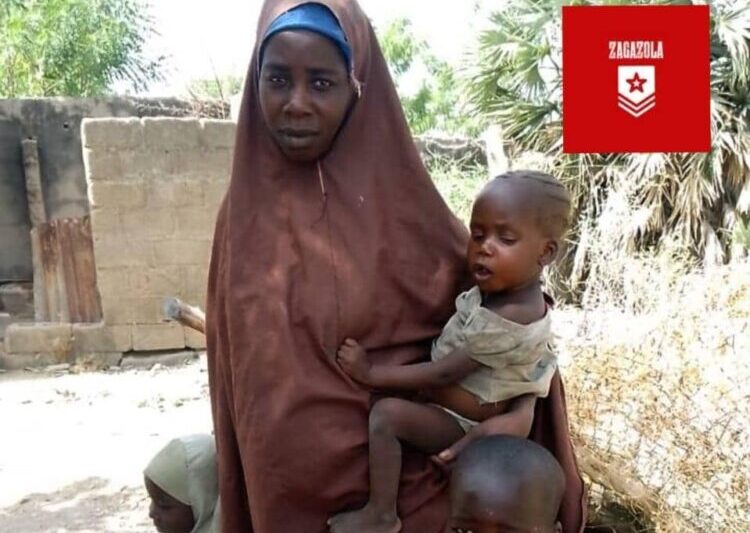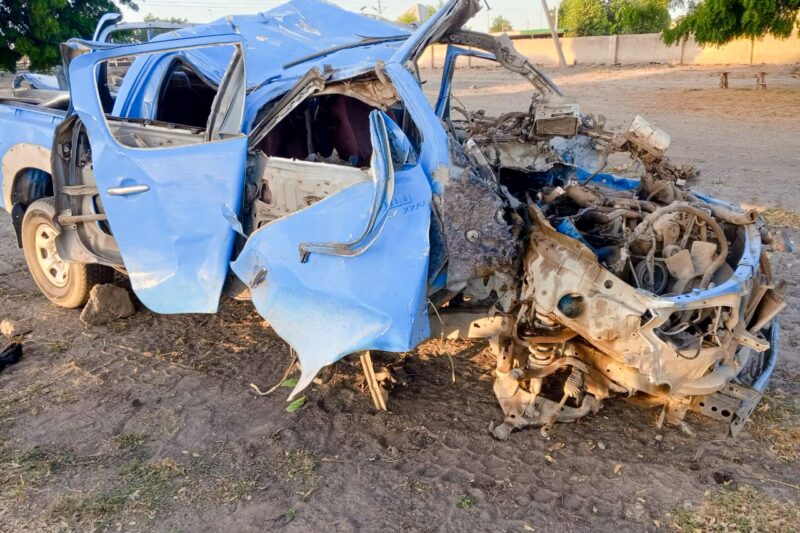Millions of people in northeastern Nigeria are starving and at least one million children are suffering from malnutrition. And the food crisis is just getting worse, hitting a five-year high.
The United Nations World Food Programme (WFP) said in a report published on October 15, that 4.4 million people in northeastern Nigeria did not know when or where their next meal was coming from.
It warned that it might soon be forced to cut food rations to more than half a million women, men and children unless urgent funding was secured to continue life-saving operations in the crisis-ridden Borno, Yobe and Adamawa states.
The aid agency said it needed at least US$55 million in the coming weeks, otherwise it would have no choice but to cut food rations and reduce the number of people it served – where assistance was already prioritised for the most vulnerable – as early as November.
The cuts would come just as severe hunger reached a five-year high in the country in the wake of years of conflict and insecurity − a situation that has been worsened by the socio-economic fallout from COVID-19, high food prices and limited food supply.
“Cutting rations means choosing who gets to eat and who goes to bed hungry. We are seeing funding for our life-saving humanitarian work dry up just at the time when hunger is at its most severe,” said Chris Nikoi, the WFP’s regional director for West Africa following a recent visit to Nigeria.
“We see that funding for our vital humanitarian action – for emergency food distribution and nutritional support – is drying up just when hunger is at its greatest, ” he said.
“Our food assistance is a lifeline for millions whose lives have been upended by conflict and who have almost nothing to survive on. We must act now to save lives and avoid disruptions to this lifeline,” Nikoi said.
The WFP said the number of internally displaced people – those forced to flee their homes in search for safety – in northeast Nigeria had been rising steadily and had reached a new all-time high of more than 2 million in September.
The continued attacks on communities by non-state armed groups, the harsh lean season, conditions in an economy grappling with the fallout from the COVID-19 pandemic, high food prices and the sharp reduction in the purchasing power of households all contributed to bleak outlook for the most vulnerable people in northeast Nigeria.
“Our food aid is a lifeline for millions of people whose lives have been turned upside down by the conflict and who have almost nothing on which to survive. We must act now to save lives and prevent this lifeline from being interrupted,” said Nikoi.
“Cutting food assistance will be a painful decision for humanitarians as it will negatively affect children, women and men uprooted from their homes because of continued violence,” said Edward Kallon, the United Nations humanitarian coordinator in Nigeria. “As we call upon our partners to step up their support in response to the growing needs, I would like to say thank you to those who have stood with us over the years in providing the much-needed humanitarian assistance in the country.”
For five years, the WFP has provided life-saving food and nutrition assistance to severely food insecure people, displaced families in camps, and to vulnerable people living in host communities thanks to contributions from Canada, the European Union, France, Germany, Italy, Japan, Nigeria, Republic of Korea, Sweden, Switzerland, United Kingdom, the United States, and private donors.
This year, relying on the continued generosity of donor partners, the WFP ramped up its response to address the rising food insecurity and the effect of the COVID-19 pandemic, targeting 1.9 million displaced people in Nigeria with life-saving food assistance.
To sustain humanitarian operations in northeast Nigeria until March 2022, the WFP said it urgently required US$197 million.








